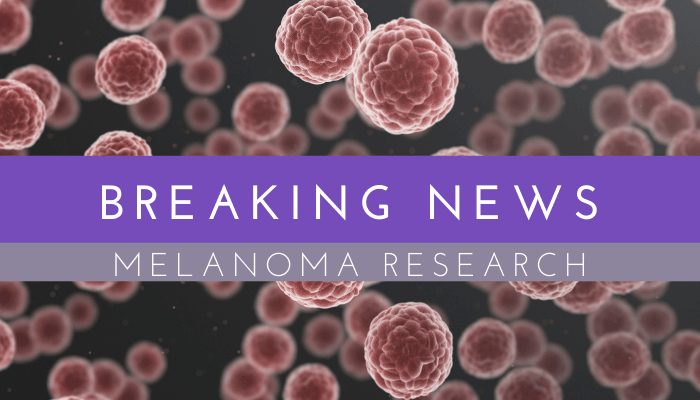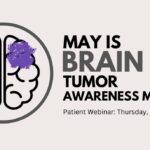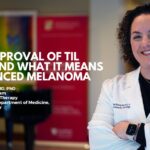
REPOST from OncLive
The European Medicines Agency has validated its marketing authorization application for the fixed-dose combination of relatlimab and nivolumab in the frontline treatment of adult and pediatric patients with advanced melanoma.

Jonathan Cheng
The European Medicines Agency has validated its marketing authorization application for the fixed-dose combination of relatlimab and nivolumab (Opdivo) in the frontline treatment of adult and pediatric patients with advanced melanoma.1
The filing follows primary results from the phase 2/3 RELATIVITY-047 trial (NCT03470922), which showed that the doublet resulted in a median progression-free survival (PFS) of 10.12 months (95% CI, 6.37-15.74) vs 4.63 months (95% CI, 3.38-5.62) with nivolumab monotherapy (hazard ratio [HR], 0.75; 95% CI, 0.62-0.92; P = .0055); this translated to a 5.49-month improvement.
Moreover, the PFS rate at 12 months in the investigative arm was 47.7% (95% CI, 41.8%-53.2%) vs 36.0% (95% CI, 30.5%-41.6%) in the control arm. Notably, the PFS benefit demonstrated with the fixed-dose regimen was observed regardless of prespecified subgroups and stratification factors.
“Melanoma can be a devastating disease and cases have been on the rise for years. The results from the RELATIVITY-047 trial demonstrate the potential that the relatlimab and nivolumab fixed-dose combination holds for people with advanced forms of this cancer,” Jonathan Cheng, senior vice president and head of oncology development at Bristol Myers Squibb, stated in a press release. “If approved, this treatment would become the first of its kind available to patients in the European Union. We look forward to working with the EMA as they evaluate this combination – which includes our third distinct check point inhibitor – and are proud of this first step toward making it available for patients with advanced melanoma.”
The global, double-blind, phase 2/3 RELATIVITY-047 trial enrolled 714 treatment-naïve patients with unresectable or metastatic melanoma who had an ECOG performance status of 0 or 1. Participants were randomized in a 1:1 fashion to intravenous (IV) relatlimab at 160 mg plus nivolumab at 480 mg every 4 weeks or IV nivolumab alone, given at 480 mg every 4 weeks.
Patients were stratified based on LAG-3 and PD-L1 status, BRAF mutational status, and American Joint Committee on Cancer (AJCC) version 8 metastatic stage.
The primary end point of the research was PFS per blinded independent central review (BICR). Secondary end points comprised overall survival (OS) and overall response rate (ORR) by BICR.
The median age of participants across the treatment arms was 63 years and 41.7% were female. Moreover, 66.9% of patients had an ECOG performance status of 0 and 36.1% had a serum lactate dehydrogenase level that was greater than the upper limit of normal; 38.9% of patients had a AJCC v.8 metastatic stage of M1C, and 2.4%had a stage of M1D.
Just over 8% of patients (8.4%) received prior neoadjuvant or adjuvant therapy. In the combination arm, the median tumor burden was 59.0 mm vs 54.5 mm in the monotherapy arm. Moreover, 75.2% of patients had a LAG-3 expression of 1% or higher, 59.0% had a PD-L1 expression that was less than 1%, 61.5% had BRAF wild-type disease, and 65.7% had a AJCC metastatic stage of M0/M1any(0).
Additional data from RELATIVITY-047 presented during the 2021 ASCO Annual Meeting revealed that the HR for PFS in the subset of patients with cutaneous acral melanoma was 0.84 (95% CI, 0.50-1.39); in those with cutaneous non-acral disease, mucosal disease, and other subtypes, the HRs for PFS were 0.73 (95% CI, 0.57-0.93), 0.72 (95% CI, 0.36-1.45), and 0.77 (95% CI, 0.44-1.36), respectively.2
The PFS benefit was found to favor the fixed-dose doublet over the monotherapy, irrespective of LAG-3 expression status. Among those with a LAG-3 expression of 1% or higher who were randomized to the investigative (n = 268) or control (n = 269) arms, the median PFS was 12.58 months (95% CI, 6.67-23.10) and 4.76 months (95% CI, 4.47-8.61), respectively (HR, 0.75; 95% CI, 0.59-0.95). In those with an expression of less than 1%, the median PFS with the doublet (n = 87) was 4.83 months (95% CI, 2.86-10.05) vs 2.79 months (95% CI, 2.79-4.63) with the monotherapy (n = 90; HR, 0.78; 95% CI, 0.54-1.15).
Additional findings shared during the 2021 ESMO Congress demonstrated that those who received the fixed-dose combination and who discontinued treatment (n = 167) experienced a longer treatment-free interval (TFI) vs those who were given single-agent nivolumab (n = 151).3 The median TFI in the investigative and control arms was 3.32 months (range, 0.1-30.4) and 1.41 months (range, 0.1-25.6), respectively.
Relatlimab/nivolumab also resulted in reduced risk of progression after the next line of systemic therapy (PFS2), according to investigator assessment, or death vs single-agent nivolumab. The median PFS2 had not yet been reached (95% CI, 21.75–not reached) with the doublet vs 20.04 months (95% CI, 15.44-25.13) with the monotherapy (HR, 0.77; 95% CI, 0.61-0.97).
The median duration of treatment in the investigative and control arms was 5.6 months and 4.9 months, respectively, and 66.8% and 64.9% of patients, respectively, discontinued treatment. The most common reasons for therapy discontinuation included disease progression (36.3% vs 46.0%, respectively), treatment-related adverse effects (AEs; 17.7% vs 8.9%), patient request (5.4% vs 3.3%), and a toxicity that was not associated with the treatment (3.4% vs 3.9%).
Moreover, 37.3% of patients who received nivolumab only received subsequent therapy compared with 35.5% of those who were given the doublet; 29.8% and 27.9% of patients, respectively, received systemic therapy.
In the investigative and control arms, subsequent treatments included PD-1 and/or CTLA-4 inhibitors (9.0% vs 12.8%, respectively), BRAF and/or MEK inhibitors (11.5% vs 13.9%), or other systemic options (10.7% vs 12.3%). Additionally, 11.5% of those on relatlimab/nivolumab vs 10.0% of those on nivolumab monotherapy went on to receive radiotherapy; 5.1% vs 2.7%, respectively, went on to undergo surgery.
Additionally, 40.7% of the off-treatment patients included in the TFI analysis who were given the doublet did not go on to receive subsequent systemic therapy compared with 29.1% of those who had been given single-agent nivolumab. In the doublet and monotherapy arms, 31.1% and 37.7% of patients, respectively, went on to receive subsequent treatment.
Regarding safety, the doublet was found to be tolerable and did not showcase any new signals.
Follow-up of the secondary end points of OS and ORR is ongoing.
Earlier in September 2021, the FDA granted priority review to a biologics license application for relatlimab plus nivolumabfor use in adult and pediatric patients aged 12 years and older who weigh at least 40 kg and who have unresectable or metastatic melanoma. The application is based on data from RELATIVITY-047.4
References
- European Medicines Agency validates Bristol Myers Squibb’s application for LAG-3-blocking antibody relatlimab and nivolumab fixed-dose combination as first-line treatment for patients with unresectable or metastatic melanoma. News release. Bristol Myers Squibb. October 1, 2021. Accessed October 1, 2021. https://bit.ly/3l1KJja
- Lipson EJ, Tawbi HA, Schadendorf D, et al. Relatlimab (RELA) plus nivolumab (NIVO) versus NIVO in first-line advanced melanoma: primary phase III results from RELATIVITY-046 (CA224-047). J Clin Oncol. 2021;39(suppl 15):9503. doi:10.1200/JCO.2021.39.15_suppl.9503
- Hodi FS, Tawbi HA, Lipson EJ, et al. Relatlimab (RELA) + nivolumab (NIVO) versus NIVO in previously untreated metastatic or unresectable melanoma: additional efficacy in RELATIVITY-047. Presented at: 2021 ESMO Congress; September 16-21, 2021; Virtual. Abstract 1036O.
- US Food and Drug Administration accepts for priority review Bristol Myers Squibb’s application for LAG-3-blocking antibody relatlimab and nivolumab fixed-dose combination as treatment for patients with unresectable or metastatic melanoma. News release. Bristol Myers Squibb. September 20, 2021. Accessed October 1, 2021. https://bit.ly/3tVGyYG
Recent Posts

Navigating the Journey Together – Conversations with Melanoma Caregivers

May is Brain Tumor Awareness Month

President’s Letter | April 2024

Celebrating a Milestone: 20 Years of the Dallas Steps Against Melanoma Walk

